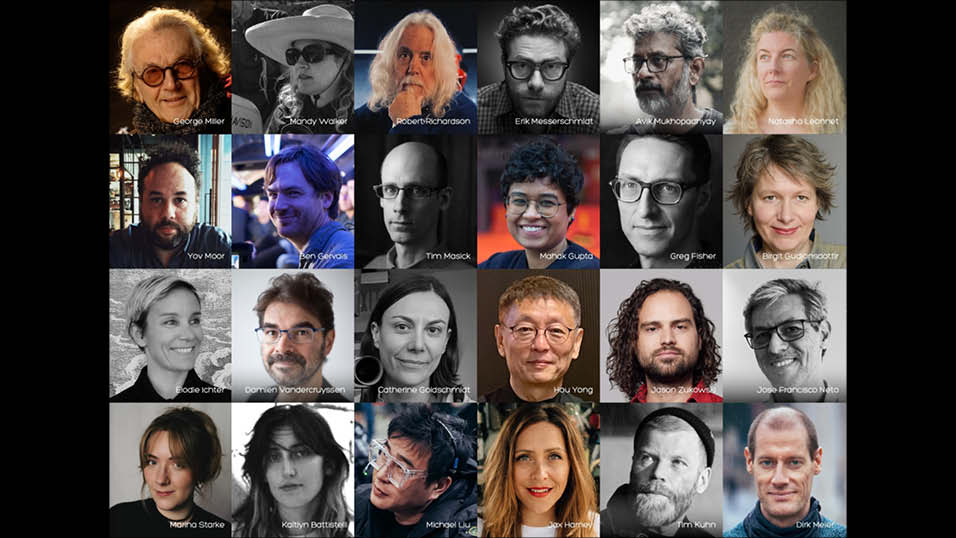Considering the environmental and social aspects of any business – including media enterprises – is becoming a regulatory as well as a moral responsibility. Former executive director of SMPTE Barbara Lange now leads a sustainability consultancy, Kibo121 (kibo121.io) to help the media industry, and has recently partnered with data specialist Dot Group (dotgroup.ai) on helping businesses understand the way ahead.
Sponsored by Dot Group

Is sustainability a top concern in the media world? And if not, should it be?
When I left SMPTE at the end of 2021, there was not a lot of talk about sustainability. Now there is much greater visibility. There are existing initiatives like BAFTA’s Albert and new ones like the DPP Commitment to Sustainability assessment and the Greening for Streaming industry group.
These efforts are backed up by legislation. The EU Corporate Sustainability Reporting Directive is already in force, which means that most businesses will need to provide information on environmental impact by 2027 at the latest, with the largest enterprises required to report in 2025 with 2024 data
Really, though, sustainability is becoming important because it is vital for our planet.
What are the metrics around sustainability? I’ve heard people talking about different “scopes” – are these defined concepts? What do they tell us?
The Greenhouse Gas Protocol is a partnership of businesses, NGOs, governments and other interested bodies, launched in 1998, and is regarded as the global lead on the subject. The protocol signed in 2001 lists three scopes of emission calculations.
Scope 1 covers the emissions under your direct control, from the way you heat or cool your building to how your staff get to work. Scope 2 are the emissions you are indirectly responsible for, like where your electricity comes from and at what percentage.
These raise very interesting business questions. Do you locate your factory in an environment where labour costs are moderate, but carbon emissions are relatively high – electricity largely generated by coal, for example – or do you move to a very low carbon environment, like Finland or Iceland?
Scope 3 is the really tough one. This looks at all the emissions your business is associated with, up and down the value chain. Are your customers using your products in the most sustainable way, over the lifetime of the product? What about transport and packaging?
I’ve talked here about building physical products because that is easy to grasp, but the same thing applies to less tangible goods, whether that is software or television programmes. You still need to consider these three scopes and be ready to report on them.
How on earth can a business which is focused on creating great television – or the products that empower them – possibly evaluate all the end-to-end emissions?
Yes, it is extra work: there is no avoiding that. But it is really important, and people expect businesses to have a sustainability strategy. Technology can really help enterprises in managing their reporting requirements.
This is where my colleagues at Dot Group come in. Their core business is in data management and engineering, so they understand how to extract the information in a form which is actionable. Together, we can help businesses create a sustainability action plan, embed it in your business so that it becomes part of the norm. Progress is tracked, with verifiable data for reporting and continuous improvement
Fundamentally, integrating good sustainability practices is about change management. At the top level, you need to be maintaining a sustainability budget alongside – and tightly interwoven with – the financial budget, as well as integrating incentives into the operations.
Do businesses even have the right data which it can interpret for sustainability?
Many will. Some will need to do more digging. For virtually all businesses, data is siloed, and that information needs to be consolidated across the whole operation.
To take an example, traditionally a television studio complex would have a sales department, which would agree a price with a production company for studio time and facilities. The sales team would have guidance on the return it needs to get on the studio, but would not know anything about, say, the electricity provider or the rate per kilowatt hour.
To meet the scopes of the GHG Protocol, the production company should now be asking about the energy consumption from the electricity supplier, and how much the studio air conditioning vents to the open air and how much needs to be cooled. The studio operator, in turn, needs to be asking those questions of the suppliers of its cameras and lights.
All this information is probably there in the business. It needs to be compiled and tracked, which is where the data analytics experts from Dot Group come in.
Is energy and sustainability the only concern?
People talk about ESG: environmental, social and governance. As an industry, we are doing reasonably well on social issues. But we should be looking up and down the supply chain to make sure that people are being treated fairly. Sustainability issues envelop diversity, equity, and inclusion efforts.
Energy must be the focus today. Remember, of course, that if we reduce the carbon footprint by reducing power consumption, then our energy bill will be lower.
That could affect creative decisions. Do we really need to make this show in 4k HDR Ultra HD? That is going to use more power in production and post, and a lot more storage space on servers which will consume more power forever.
If you are a regular at NAB or IBC, you will have seen vendors claiming that AI can replace humans in resource-heavy tasks. But AI needs enormous processing power, and displacing people may not meet our social responsibility goals. How do we balance that?
Do we just need to call in some sustainability and data experts to give the business a once-over and then forget it?
You are going to be reporting on sustainability forever. The world at large is fast becoming concerned at the irreparable damage climate change is causing and wants to see all its industries behaving responsibly. So your customers expect it, your own moral code expects it, and increasingly the law expects it.
I hope, though, that businesses realise the significance of sustainability, and develop a passion – as I have – for making a difference. There are consultancies, like Kibo121, who are set up to assist enterprises during this transition period. In addition, Lisa Collins and I are offering a series of free webinars, training and other resources to get people oriented on the topic. Go to Media Tech Sustainability Series (mtsseries.org) to learn more.
And talk to Dot Group. They have a real passion for sustainability and have the toolset that can be tailored to your business.
About Dot Group
Businesses often grapple with the challenge of effectively reporting on their environmental, social and governance policies, meeting legislative requirements and communicating progress to stakeholders. Dot Group steps in with tailored solutions to navigate these challenges.
Most businesses have a treasure trove of essential information that merely requires adept structuring, along with information from up and down the supply chain to meet Scope 3 requirements. In our mission to unlock this potential, Dot Group partners with Informatica, a leading enterprise data management provider boasting cloud-native capabilities, and with IBM, reinforcing our commitment to excellence.
Find out more at www.dotgroup.ai
This article authored by Dick Hobbs
Staff Reporter
Share this story


















